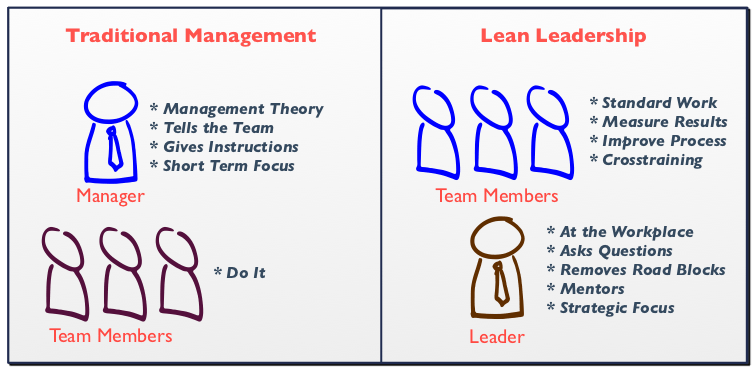Case in Point: Avoiding Martial-arts Moves by ‘pulling the Andon cord’
The Big Idea
How can executives (or any of us, for that matter) use what we know about process improvement to engage and motivate the people in our lives? Which touch points for intervention are most effective? How can we measure success?
Rachel’s approach to identifying defects in the way her family operates and harnessing the problem-solving power of its collective members is one in a series of Living Lean vignettes describing the holistic, real-world application of continuous process improvement principles.
The Scenario
Rachel is needlessly interrupted in the shower when her two sons, Jackson, 8, and Wyatt, 6, scuffle over a tricycle. The boys’ inability to independently take turns is both an impediment to their social development and is what Rachel considers to be a “defect” in her family’s normal operations.
The Resolution
Rachel steps in and calls a family meeting in a manner reminiscent of “pulling the Andon cord” — a signal that factory employees use to indicate a problem or defect on the production line. This action stops production, calls a supervisor and initiates a problem-solving investigation at the actual place that a defect occurs. The Japanese term for this is genchi genbutsu, or gemba. If possible, a correction is made on the spot and production continues. She calls the boys into the backyard, the scene of the dispute.
“Let’s figure this out,” Rachel says to the boys, “Tell me what happened.” They explain that they cannot determine who should play with the contested toy first. In an effort to decide, they have used their martial-arts moves on one another a little too hard! “You boys will be living together for the next 11 years,” Rachel says. “There will always be things that there is only one of. Let’s figure out a system now for taking turns so you don’t have to push each other next time, okay? Will you help me?” The boys nod. “Do either of you have an idea for deciding how to share?” their mother asks.
“We can take turns,” says Wyatt, confidently.
“That’s a great idea! How can you decide whose turn is first?” Rachel says.
Jackson weighs in. “We can flip a coin!”
The children decide to hide quarters around the house and yard so they are easily accessible in the event of a disagreement, and to permanently assign themselves a heads and tails designation. They also agree on 15 minutes as a standard length of time for a turn. That way, if one boy really wants the toy and it isn’t his turn, he can watch the clock — ideally without detracting from his brother’s enjoyment.
“Great problem-solving, guys,” says their mother, proudly. “Now, here’s the most important part. This idea will only work if we all agree to participate. Why don’t we try it for a month? If a month goes by and we don’t think this is working, we can think of something else. All in favor say, aye!” The boys raise their hands and commit, at least in theory, to the newly improved process.
The Lesson
While interpersonal conflict and communications failures are a part of everyday family life (and business), martial-arts moves that hit below the belt qualify as “defects” in the way a family (or business) works. A desired range of acceptable variability for any process can be defined and measured — and any occurrences outside of that variability termed a “defect” — just as tolerance ranges for machine operation can be established in a manufacturing setting.
Equally important is Rachel’s approach to implementing a resolution. She realizes that an optimal solution need not be reached immediately to take action — and by suggesting a 30-day trial period as a great first step, she doesn’t let “perfect” get in the way of “better.” By setting aside the time and space to support the boys in creating their own solution, she takes a lesson from the equation known as E=Q*A.
What does that spell?
The (E)ffectiveness of a solution is equal to its (Q)uality multiplied by the (A)cceptance of the participants. You do the math!
By Elliott Weiss and Rebecca Goldberg
 Rebecca Goldberg is a strategy consultant and management educator with over a decade of experience in producing world-class customized business education. She is a frequent contributor to custom executive education at the Darden School of Business, which has been ranked first or second for course design (globally) by Financial Times from 2003-2011. Her company, Goldberg Productions, Inc. (VA SWaM certified, pending DBE, 8(a)) helps organizations transform and perform with education.
Rebecca Goldberg is a strategy consultant and management educator with over a decade of experience in producing world-class customized business education. She is a frequent contributor to custom executive education at the Darden School of Business, which has been ranked first or second for course design (globally) by Financial Times from 2003-2011. Her company, Goldberg Productions, Inc. (VA SWaM certified, pending DBE, 8(a)) helps organizations transform and perform with education.
She holds a 2003 MBA from the Darden School of Business, a BA from Tufts University in American Studies and a BFA from the School of the Museum of Fine Arts, Boston.
 Ethyl Corporation Professor of Business Administration Elliott N. Weiss is the course head of the Operations Management area at the Darden School of Business at the University of Virginia. He is the author of numerous articles in the area of production management and operations research and has extensive consulting experience for both manufacturing and service companies in the areas of production scheduling, workflow management, logistics, lean conversions and total productive maintenance. Before coming to Darden in 1987, Weiss was on the faculty of the Johnson Graduate School of Management at Cornell University. He has held visiting appointments at the Graduate School of Management at the University of Melbourne, Australia and the Wharton School of the University of Pennsylvania.
Ethyl Corporation Professor of Business Administration Elliott N. Weiss is the course head of the Operations Management area at the Darden School of Business at the University of Virginia. He is the author of numerous articles in the area of production management and operations research and has extensive consulting experience for both manufacturing and service companies in the areas of production scheduling, workflow management, logistics, lean conversions and total productive maintenance. Before coming to Darden in 1987, Weiss was on the faculty of the Johnson Graduate School of Management at Cornell University. He has held visiting appointments at the Graduate School of Management at the University of Melbourne, Australia and the Wharton School of the University of Pennsylvania.
Goldberg and Weiss have co-authored the book Living Lean: How to Save Money and Make Time for the Fun Stuff that is currently available per vignette from Darden Business Publishing; they are looking for an additional publishing venue. The book uses personal, everyday examples of business concepts in order to make them understandable, including Lean, standard work, 5S, inventory management, equipment maintenance, optimal batch size, throughput rate and cycle time. Stories from the book have recently been featured in the Sunday Washington Post, most recently on August 5, 2012; they have been invited to attend a Joint Chiefs of Staff luncheon on October 2 of this year to present ideas from the book.
Contact at rebecca@goldbergproductions.net







